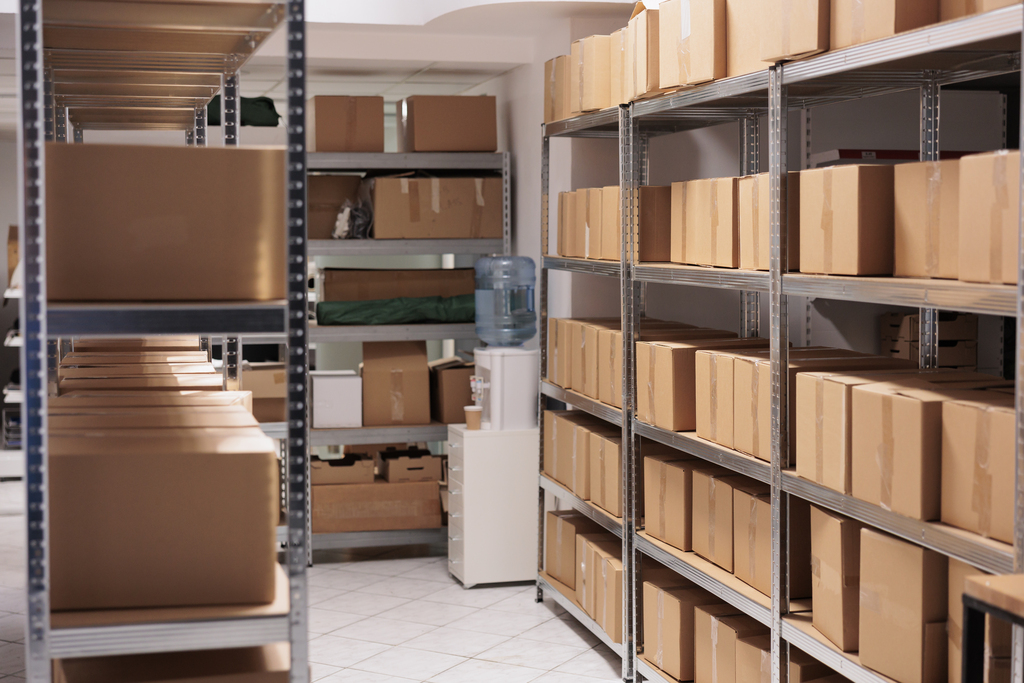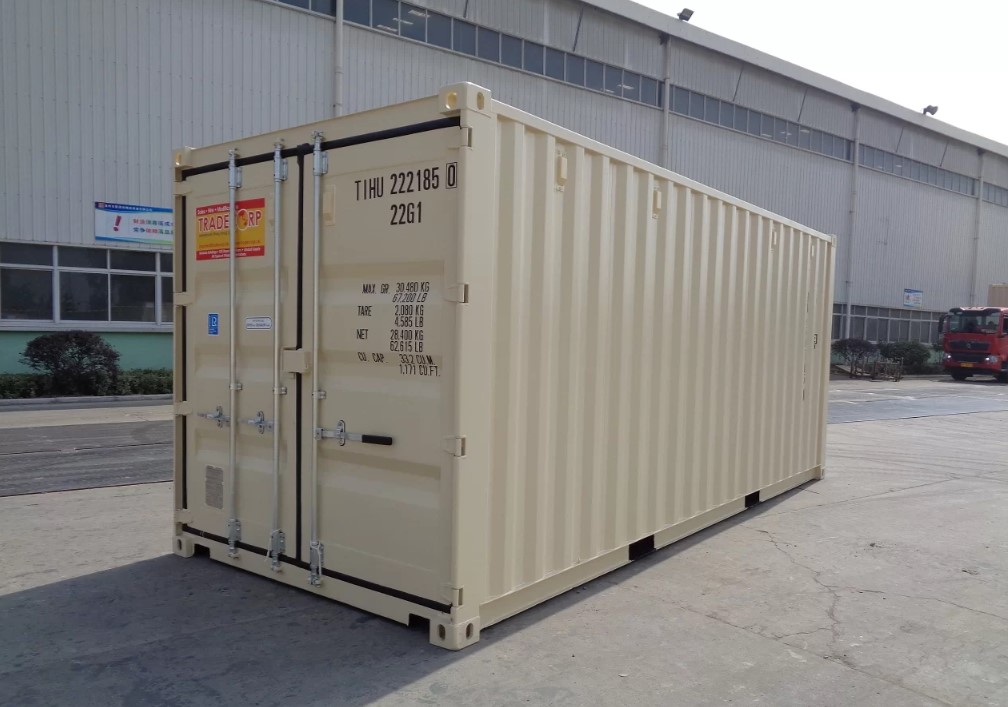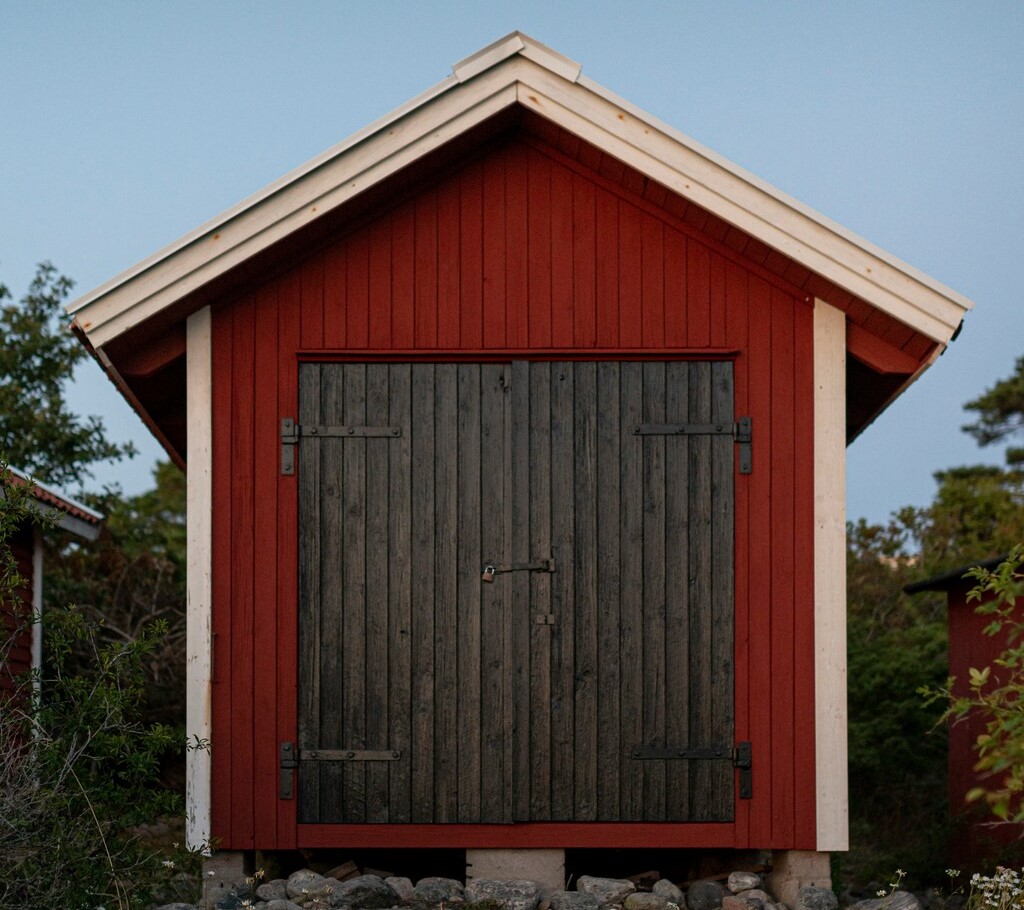Conex containers are boxes that are designed to withstand harsh environments and rough handling during long-distance transportation. Conex has a long history that is closely related to the world’s shipping industry.
Long before the “storage container” term we know today, people used Conex containers to ship goods between countries. Conex has significantly changed the way we handle logistics and design buildings.
Nowadays, many purchase and repurpose them as storage to store household equipment. To learn the dos and don’ts of using conex containers as home storage, read this article!
Contents
Conex Box As Home Storage
Conex Containers are an excellent option for home storage because they are durable, secure, and versatile. Many homeowners use them for extra space when their garage, attic, or basement gets full.
Made of corten steel, conex boxes protect belongings from theft, fire, and extreme weather. Conex containers are also designed to withstand harsh marine environments, so they keep your items safe from rain, snow, and pests. You can also relocate them anywhere to change the placement.
Conex Containers are the perfect storage for seasonal items, sports equipment, household goods, and emergency preparedness. These are Conex container sizes you can consider:
- 10’ conex container: Compact for small yards.
- 20’ conex container: Popular for homeowners; fits most residential storage needs.
- 40’ conex container: Best for large storage, but requires more space to place.
Dos

Here’s a list of important “Dos” when using conex containers as home storage:
Choose the Right Size
Choosing the right size is one of the most important steps when buying conex containers for storage. Pick a 10’, 20’, or 40’ conex depending on your storage needs and available space at home.
If you choose a conex container that is too small, you’ll run out of space quickly. If it is too big, you’ll pay extra for the unused room.
Moreover, container prices increase with size. Picking the right one avoids overspending.
Inspect Before Purchase or Rent
Even though they’re built tough, not all containers are in the same condition. Therefore, you should always inspect a conex container before buying it for storage. Inspection is a must to avoid costly repairs or unexpected problems after purchase.
Check for rust, dents, holes, and working doors/seals to ensure the container is weather-tight.
Prepare the Ground
Place the container on level ground, preferably on a concrete pad, pavers, or railroad ties to avoid sinking and moisture buildup.
Avoid placing conex containers directly on bare ground. This can cause rusting at the base and poor drainage.
Add Ventilation
It is highly recommended to add ventilation when using conex containers as storage. Install vents or a small dehumidifier to reduce condensation and protect items from mold and mildew.
Without airflow, moisture can damage your belongings like furniture, clothes, paper, and electronics. Moisture can also speed up rusting inside the container.
Secure It Properly
Use high-security lockboxes or padlocks to keep belongings safe from theft. Using only a basic padlock makes it vulnerable. Invest in lockboxes or heavy-duty container locks.
Organize with Shelving and Racks
Maximize space and keep things accessible by installing shelves, hooks, or pallet racks inside. They use vertical space, so you can fit more without stacking everything on the floor.
Racks and shelves make it easier to reach items without moving heavy boxes. They also keep items off the ground, which prevents water damage in case of condensation or minor leaks.
Check Local Regulations
Verify zoning laws, HOA restrictions, or permit requirements before placing a container on your property. Do not place it without checking rules, as some neighborhoods, HOAs, or cities restrict container placement. You do not want to risk fines or removal orders.
Maintain Regularly
Inspect the roof and corners for rust, repaint if necessary, and keep the doors lubricated.
Do not leave the conex containers unmaintained. Rust, stuck doors, or roof dents can worsen if ignored. Regular checks prevent bigger problems.
Don’ts

Here’s a clear list of the Don’ts when using conex containers as home storage:
Don’t Store Hazardous Materials
You should not store hazardous materials inside a standard Conex container used for home storage. Flammable items like gasoline, propane, paint thinner, or fireworks can ignite in a closed, metal box.
Chemicals can release dangerous vapors that build up inside the sealed container. If damage or accidents occur, insurance often won’t cover it if hazardous storage is involved.
If you need to store such items, you’d need a specialized container, like a Hazmat Container, with ventilation, spill containment, and fireproofing.
Don’t Overload the Container
Containers are strong, but uneven stacking or too much weight on shelves can cause collapse or make access difficult.
Stacking items too high or packing too tightly makes it dangerous to access belongings, as boxes or equipment may fall. Moreover, overstuffing can block airflow, increasing moisture buildup and the risk of mold.
Don’t Store Valuables Without Extra Protection
Jewelry, cash, and sensitive documents should be stored in a safe, not a container.
While conex containers are strong, determined thieves can still cut locks or force entry if valuables are left unsecured. Moreover, there are also temperature & humidity risks that could damage your jewelry, electronics, documents, and collectibles.
So, if you plan to store valuables, you need extra layers of security and protection.
Don’t Block Access
Make sure you leave space around the doors for easy entry. Avoid placing it too close to fences or walls.
Conex Box Recommendations

Here are some available models of conex containers in Newark from Tradecorp, one of the trusted container providers:
Standard Dry Container
Our standard containers represent the most popular and economical option for businesses and individuals seeking durable storage solutions. These units offer unparalleled versatility, serving countless applications from secure storage to the foundation for creative modification projects.
Built with premium Corten steel and featuring wind and water-tight construction, these containers maintain their structural integrity through extreme weather conditions, making them perfect for both short and long-term applications.
Standard containers are available in sizes 10’, 20’, and 40’.
High Cube Container
Tradecorp offers High Cube Containerized Self-Storage Units, specialized storage solutions that conventional storage facilities cannot provide. Available in 6’, 8’, 10’, 16’, and 20’ sizes in high cube design, these self-storage units are perfect for helping homes and businesses protect precious belongings and seasonal items.
Since their designs are inspired by standard shipping containers, expect the durability of Corten steel-based construction to protect your belongings and materials. Standard container features, including insulated walls, castors with twist locks, corner castings, forklift pockets, air vents, and vinyl flooring, are available to maximize the Containerized Self-Storage Units’ ability to fulfill their tasks.
Conclusion
Renting or buying a conex container storage is a budget-friendly storage solution, especially when used short-term.
Tradecorp is a reliable shipping container sales, purchase, rental, and modification service company. Tradecorp provides modification and custom shipping container services by adding windows, doors, walls, and roof insulation.
Our experienced staff is ready to help you arrange the shipping of your shipping container to your requested location. Fill out our quote form to buy or rent from us!


